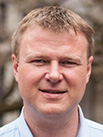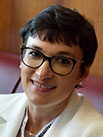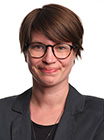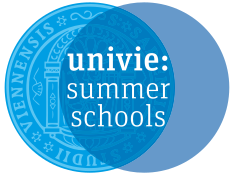
staff
esss Steering committee
The steering committee is responsible for the activities of the esss.
All organizing institutions are represented in the steering board.
Members of the Steering Committee:

Prof. Dr. Wolfgang Glänzel
Centre for R&D Monitoring (ECOOM) & Faculty of Economics and Business, KU Leuven, Belgium
Wolfgang Glänzel is Director of the Centre for R&D Monitoring (ECOOM) and Professor at KU Leuven (Belgium). He is also affiliated with the Dept. Science Policy & Scientometrics at the Library of the Hungarian Academy of Sciences in Budapest (Hungary). Wolfgang Glänzel studied mathematics at the Eötvös Lorand University (ELTE) in Budapest. He holds a doctorate in mathematics from ELTE obtained in 1984 as well as a PhD in the Social Sciences obtained from Leiden University (Netherlands) in 1997.
He worked about twenty years at the Library of the Hungarian Academy of Sciences before he moved to Leuven (Belgium) in 2002, where he works and lives at present. He is also Guest Professor at several Universities in China and the UK.
His research activities comprise probability theory and mathematical statistics, quantitative science studies and research policy. In the field of probability theory he has published on the characterisation of probability distributions, in quantitative science studies and research policy his research is mainly focussed on models of scientific communication, the development of scientometric indicators, the analysis of co-authorship patterns and research collaboration, the structural-cognitive mapping of science, bibliometrics-aided retrieval and the measurement of research performance at various levels of aggregation. Wolfgang Glänzel has published numerous journal articles, proceedings, and book chapters and co-authored/co-edited several books. He was Alexander von Humboldt Fellow for two years in Germany. In 1999 he received the international Derek deSolla Price Award for outstanding contributions to the quantitative studies of science.
He is Secretary-Treasurer of the International Society for Scientometrics and Informetrics (ISSI) and Editor-in-Chief of the Society’s Newsletter. Wolfgang Glänzel is Editor-in-Chief of the international journal Scientometrics since 2014.
Personal website:
https://feb.kuleuven.be/Wolfgang.Glänzel

Asst.Prof. Dr. Bart Thijs
Centre for R&D Monitoring (ECOOM), KU Leuven, Belgium
Bart Thijs is a professor at KU Leuven, holding the ECOOM-funded chair in Bibliometrics and serving as a senior research fellow at the Centre for R&D Monitoring (ECOOM). He specializes in bibliometric research and provides bibliometric services to the Flemish government. He is also responsible for the design, development, and implementation of the data platform and research environment at ECOOM.
Prof. Thijs graduated in Psychology with a specialization in Statistics from KU Leuven in 1999. He spent several years in industry as a statistical consultant, focusing on the design and implementation of automated data analysis projects. In 2010, he earned his PhD in Social Sciences from Leiden University in the field of bibliometrics.
Currently, he teaches a course on the analysis of large-scale social networks within the Master of Artificial Intelligence program in the Department of Computer Science and a course on advanced research methods in quantitative science and technology studies in the doctoral program of the Department of Management, Strategy and Innovation (MSI) at KU Leuven. He is co-supervising PhDs at MSI and a joint PhD with the Faculty of A.
Prof. Thijs has co-authored over 70 publications, including journal articles, conference contributions, book chapters, and working papers. His research has evolved from profiling research institutes for improved bibliometric evaluation to exploring lexical and citation-based document similarities for science mapping. His current work focuses on graph representational learning and text embedding techniques using large language models to enhance science and technology mapping, document classification, and indicator development.
He has been an active contributor to numerous national and international research projects funded by agencies such as the EU, FWO-CELSA, and BMBF. In 2018-2019, he has been a visiting scholar at the Laboratoire d’Informatique de Grenoble, where he worked on text embeddings for canonical sections in full papers.

Dr. Sybille Hinze
Berlin University Alliance, Germany
Sybille Hinze graduated in ‘Management of Science’ from Humboldt-University, Berlin and got her PhD from Leiden University, Centre for Science and Technology Studies (CWTS), the Netherlands in 1997. While pursuing her PhD at Leiden University she worked as a research fellow at the Fraunhofer Institute for Systems and Innovation Research. From 1997-1999 she was a postdoctoral fellow at the Research Evaluation and Policy Project, Australian National University, Canberra. Afterwards she held a senior researcher position at Fraunhofer ISI, where she was also deputy head of the competence centre “Policy and Regions”. From March 2005 to August 2006 she was seconded to the European Commission, DG Research, Unit Programming, Monitoring, and Evaluation. From August 2008 to December 2015 she was deputy director of the Institute for Research Information and Quality (iFQ) Assurance. With the merger between iFQ and the German Center for Higher Education Research and Science studies (DZHW) in 2016 she became deputy director of the DZHW’s Department 2 “Research System and Science Dynamics”. From November 2014 till July 2020 she was the elected chair of the German Competence Centre for Bibliometrics and in July 2020 Sybille was appointed as head of the newly founded Center for Open and Responsible Research at the Berlin University Alliance.
Sybille Hinze is a member of the steering committee of the European Summer School for Scientometrics. Until December 2022 she was the European Editor of the Journal “Science and Public and has since been a member of its editorial board. Since September 2013 she is secretary of the European Network of Indicator Designers.

Dr. Stephan Gauch
Humboldt Universität zu Berlin, Germany
Stephan Gauch is the current head of the research group “Reflexive Metrics” at Humboldt Universität zu Berlin that aims to develop the notion of “reflexive bibliometrics” by integrating semiotics, sociology of science and practices of bibliometric research. Stephan Gauch studied social sciences with a focus on quantitative sociology at University of Mannheim and received a diploma degree for his work on the relationship of the digital divide and social inequality.
He received his PhD in economics from Technical University Berlin on the interlinkage between research and standardization in the domain information and communication technologies which was awarded the “Sonderpreis Wissenschaft 2012” by the German Institute for Standardization (DIN). In the past he has been affiliated to several research organizations such as two Fraunhofer Institutes (Fraunhofer Institute for Systems- and Innovation Research, Fraunhofer Institute for Open Communication Systems), the chair of innovation economics at Technical University Berlin, the German Centre for Higher Education Research and Science Studies (DZHW) and the Humboldt-Universität zu Berlin. In the past his research focus has been the relationship between research and standardization and the development of evaluative and explorative methods in the domain of innovation and research.
He has been involved in pioneering new sources of data for indicator construction such as the use of trademarks as innovation indicator in services or standards as indicators for diffusion and coordination of innovation. Over time his interests shifted towards performative and reflexive effects of quantification specifically in the field of bibliometrics which he addresses by integrating quantitative and qualitative approaches in his research. He has a strong footing in statistical programming with over 10 years of experience in the statistical programming language R.
For the last years he has been teaching introductory and advanced bibliometric classes at Humboldt Universität zu Berlin to students with a diverse range of disciplinary backgrounds. He is among the founding and council members of the Robert K. Merton Centre for Science Studies situated in Berlin.

Dr. Stephan Stahlschmidt
German Centre for Higher Education Research and Science Studies (DZHW), Germany
Stephan Stahlschmidt currently works as the “Assessment and Indicators” group leader at the German Centre for Higher Education Research and Science Studies (DZHW, Berlin), where he also serves as the project lead of the German Competence Network for Bibliometrics administrative office. He received his PhD in Statistics at the Humboldt-Universität zu Berlin and hold researcher positions at the Berlin School of Economics and Law, Heidelberg University and United Nations Office on Drugs and Crimes. His research interests focus especially on digital infrastructures and their applications in bibliometrics.

Dr. Dimity Stephen
German Centre for Higher Education Research and Science Studies (DZHW), Germany
Dimity Stephen is a post-doctoral researcher at the German Centre for Higher Education and Research Studies (DZHW) in Berlin, Germany. She holds a bachelor’s in psychology and a PhD in public health from Queensland University of Technology in Brisbane, Australia. Dimity’s main research interests lie in applying bibliometric methods to interrogate research on research questions in the areas of questionable publishing practices, peer review, academic research quality, and altmetrics.

Prof. Dr. Nicolas Robinson-Garcia
Universidad de Granada, Spain
Nicolas Robinson-Garcia is a researcher in the field of bibliometrics and research evaluation. He works at the Information and Media department at the University of Granada. He previously worked at Delft Institute of Applied Mathematics, TU Delft (Netherlands), the School of Public Policy at Georgia Institute of Technology and at INGENIO (CSIC-UPV) in Spain. He holds a PhD on Social Sciences at the University of Granada. He collaborates with EC3metrics SL as an external independent consultant. He has published over 40 articles and book chapters in the field of bibliometrics and research evaluation, including in elite journals like Nature, Science or Plos One.
Personal website:
https://elrobin.github.io/

Prof. Dr. Daniel Torres-Salinas
Universidad de Granada, Spain
Daniel Torres-Salinas holds a PhD in scientific documentation. He currently works as bibliometrician at the Research Evaluation Unit (University of Granada). He is researcher in EC3 Research Group (Evaluación de la Ciencia y de la Comunicación Científica) about bibliometric topics. Also he is CEO of the EC3metrics spin-off and coordinator of the Digital Science Section in Medialab UGR. He is co-author of evaluation tools such as Científicacvn, Rankings I-UGR de Universidades, Clasificación CIRC, Bipublishers o UGRinvestiga. He have published more than 60 scientific publications in journals indexed in the Web of Science (Clarivate Analytics). He teaches courses on scholarly communication, altmetrics, scientific career, etc… He is teacher in the European Summer School for Scientometrics (ESSS) and in the Master in Science Communication at the University of Granada.

Dr. Wenceslao Arroyo-Machado
Universidad de Granada, Spain
Wenceslao Arroyo-Machado, holding a postdoctoral position at Arizona State University, is a Ph.D. in Information and Communication Technologies from the University of Granada (UGR). His interdisciplinary education combines sciencemetrics and data science, focusing on the analysis of science and its interactions with society. Wenceslao Arroyo-Machado has an emerging research career with over 20 international publications in scientometrics. He also holds the position of COO at EC3metrics, a spin-off from the University of Granada, where he applies bibliometrics in a practical context for the drafting of bibliometric reports and evaluation tasks. This synergy has enabled him to integrate novel techniques into bibliometric reports and develop practical research methodologies, showcasing his involvement with scientometrics across academic, teaching, and practical domains.

Prof. Dr. Cinzia Daraio
Sapienza University of Rome, Italy
Cinzia Daraio is a Full Professor at the Department of Computer, Control and Management Engineering „A. Ruberti“ (DIAG) of Sapienza University of Rome, Italy. She is specialized in science and technology indicators, data quality and data integration, higher education microdata, methodological and empirical studies in productivity and efficiency analysis. Over the years, she participated in several international and national research projects and expert groups at the European Commission and OECD on these subjects. She is member of the Editorial Board of Scientometrics, Journal of Informetrics, Journal of Data and Information Science, Quantitative Science Studies, Journal of Productivity Analysis, International Transactions in Operational Research and others. She edited in 2020, with Wolfgang Glänzel, the Springer book on “Evaluative informetrics – the art of metrics-based research assessment, Festschrift in honour of Henk F. Moed”.
Personal website: http://www.diag.uniroma1.it/~daraio/

Prof. Dr. Alessandro Avenali
Sapienza University of Rome, Italy
Alessandro Avenali, Ph.D. in Operations Research, is a Full Professor at the Department of Computer, Control, and Management Engineering „A. Ruberti“ (DIAG) of Sapienza University of Rome, Italy. His teaching and research interests are in Industrial Organization, Economics and Regulation of Telecommunications and Transport, Mechanism Design, Network Design, Combinatorial Auctions. Recently, he investigated the importance of accounting systems for data quality and the role and robustness of rankings of higher education institutions. He has worked in several Italian and European research projects, with grants from firms and institutions.

Iwona Dullinger, PhD
University of Vienna, Austria
Iwona Dullinger is a data librarian at the University of Vienna, Austria. She holds a degree in Biology and a PhD in Natural Sciences, both from the University of Vienna. After completing her PhD, Iwona transitioned into the field of librarianship by pursuing a postgraduate program in Library and Information Studies. She initially worked as a solo and teaching librarian at the University of Applied Sciences Wiener Neustadt. In 2024, she joined the Current Research Information System (CRIS) team at the University of Vienna, where she primarily works on the integration of bibliometric indicators into the CRIS and manages reporting tasks.

Dr. Juan Gorraiz
Bibliometrics and Publication Strategies, University of Vienna, Austria
Juan Gorraiz studied Physics at the University of Madrid and at the University of Vienna, where he also received his PhD. He is the founder and former head of the Department of Bibliometrics and Publication Strategies at the Library and Archives Service of the University of Vienna, one of the first library departments to specifically offer bibliometric services to support researchers and research administrators.
Since 2001, she has been involved in bibliometric analyses for internal university services, research projects and externally commissioned studies. In addition, he has been teaching information retrieval and bibliometrics in the university subject „Library Science and Documentation“ since 1992.
Juan Gorraiz was the organiser and programme director of the „10th International Conference on Science & Technical Indicators“ in 2008 and of the „14th International Society of Scientometrics and Informetrics Conference 2013“ in Vienna.
He is also one of the initiators of the European Summer School for Scientometrics (esss), where he is a member of the steering committee and a lecturer.
Juan Gorraiz is a member of the scientific editorial boards of the journals „Scientometrics“ and co-editor of „Journal of Informetrics“ and has re published a special issue on „Best Practices in Bibliometrics & Bibliometric Services“ for the journal „Frontiers Research Metrics & Analytics“.
He is currently working as a consultant for the University of Vienna and is responsible for bibliometric analyses for external institutions.
esss Office:

Martin Wieland
Library and Archive Services, University of Vienna, Austria
Martin Wieland studied at the Department of Social and Cultural Anthropology (University of Vienna) and specialised in Mongolian- and Gender Studies. He’s founder and head of a medical publishing company. He has developed and managed several major European Union projects on workplace health promotion and cross-border healthcare and was an advisor on cross-border healthcare at the European Committee of the Regions in Brussels. He has taught European health policy at the University for Continuing Education Krems.
Since 2008 working at the Vienna University Library, he has been one of the founders of the Department of Bibliometrics and organised the establishment and development of the European Summer School for Scientometrics (esss). He is head of the esss Office since 2015.
Distinguished esss advisors

Prof. Dr. Stefan Hornbostel
German Centre for Higher Education Research and Science Studies (DZHW), Germany
Prof. Dr. Stefan Hornbostel, founding member of the esss, studied Social Sciences at the University of Göttingen. In 1995, he received his PhD from Freie Universität Berlin. He worked at the Universities of Kassel, Cologne, Jena and Dortmund, as well as at the Center of Higher Education Development (CHE – Centrum für Hochschulentwicklung). Stefan Hornbostel served as Director of the Institute for Research Information and Quality Assurance (IFQ) from 2005 to 2015. He was appointed Professor at the Humboldt-Universität zu Berlin, Department of Social Sciences (Science Studies) in 2005. Since 2016, he is head of the research area “Research System and Science Dynamics” at the German Centre for Higher Education Research and Science Studies (DZHW). He is a member of the advisory board of the Saxon State and University Library Dresden (SLUB), and member of the advisory board for the Centre for Research Quality and Policy Impact Studies (R-Quest), Oslo. His research interests lie in the field of science studies, bibliometrics, and elite sociology.

Ursula Ulrych
Austrian Transition to Open Access Two (AT2OA²), University of Vienna, Austria
Ursula Ulrych studied Microbiology and successfully finished the postgraduate programme Library and Information Studies, both at the University of Vienna. After gaining expertise in international collaboration and project management at a biotech company, she was part of the Bibliometrics and Publication Strategies Department at the University of Vienna from 2015 to 2022. The administrative management of the European Summer School for Scientometrics (esss) as well as active contribution to this annual event was one of her primary tasks. From 2020 to 2022 she additionally held the position of deputy head of the department. She is currently pursuing an MBA and is coordinator of the project Austrian Transition to Open access Two (AT2OA²), an initiative that contributes to the transformation from closed to open access in scientific communication and promotes the implementation of supporting measures.
The intelligent use of scientometrics, which is increasingly a must, requires rigorous training in the nooks and cranny of bibliometric methods. The esss is a timely response to this urging need, and the four organisations behind the initiative have demonstrated their professionalism in this field which is a guarantee that summer students will be exposed to sound practice and clever thinking.

